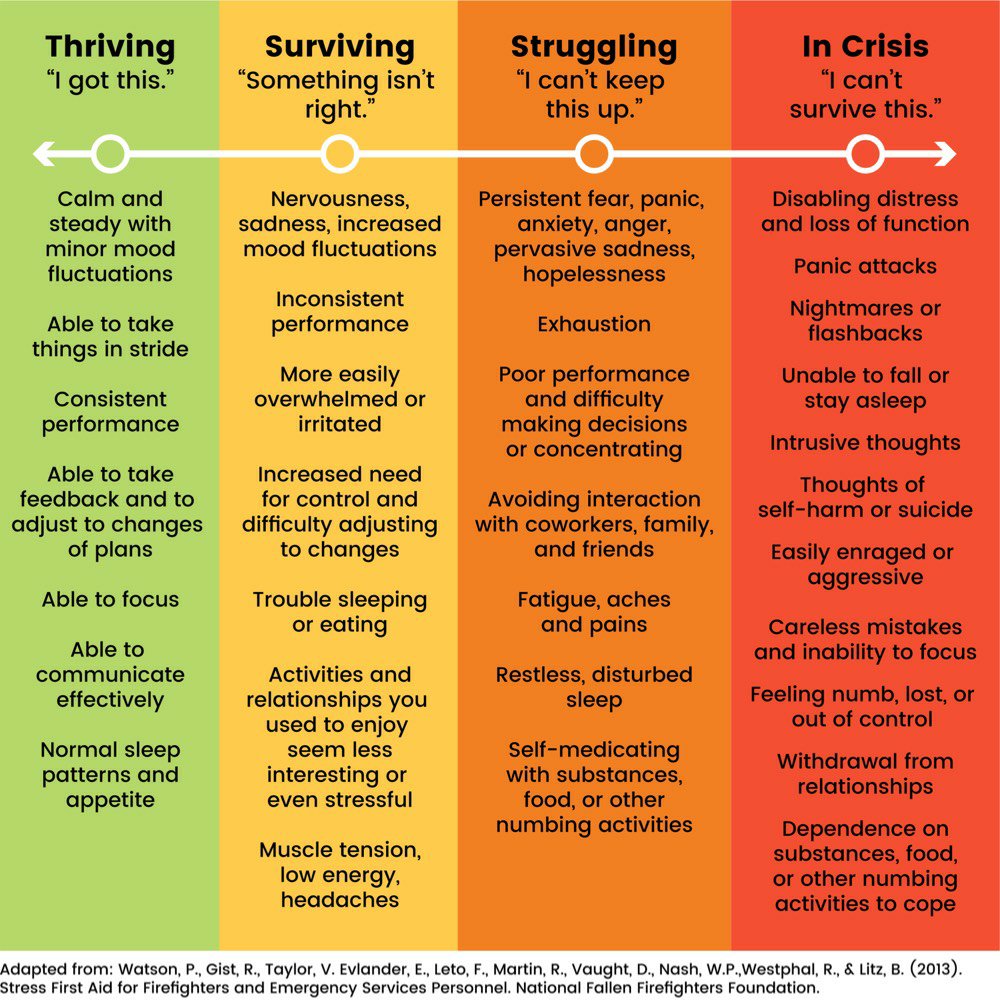Are you OK?
I wanted to share a couple of things that I found via Jason Kottke. The first is this infographic made for healthcare workers in Colorado:.

The reason I think this is helpful is that it’s sometimes difficult to spot in yourself and others when things start slipping from “Surviving” to “Struggling”.
If you do find that someone you know needs some help, Kottke links to an article published by Kathryn Gordon this time last year entitled How to help a friend through a tough time, according to a clinical psychologist.
She points out how difficult it can be to help others if you haven’t been thought what they’re suffering:
When we are not equipped to support loved ones through a hard time, our discomfort can compel us to point out a bright side or offer a simple solution, which may come across as dismissive. Sometimes, my patients say they walk away feeling judged or burdensome. While putting ourselves in other people’s shoes and treating people how we want to be treated are generally useful principles, they are not always the most effective ways to cultivate compassion. It is hard to imagine being in a situation that you have not actually been in, and people differ in what they find comforting.
Gordon goes on to give five pieces of advice:
- Ask them how they are feeling. Then, listen non-judgmentally to their response.
- Show them that you want to understand and express sympathy.
- Ask how you can support them and resist jumping in to problem-solve.
- Check in to see if they are suicidal.
- Reassure them, realistically.
I found these resources really useful, so thanks to Kottke for sharing them. I hope by re-sharing these resources here means they reach a few people who otherwise wouldn’t have seen them.
This post is Day 69 of my #100DaysToOffload challenge. Want to get involved? Find out more at 100daystooffload.com
